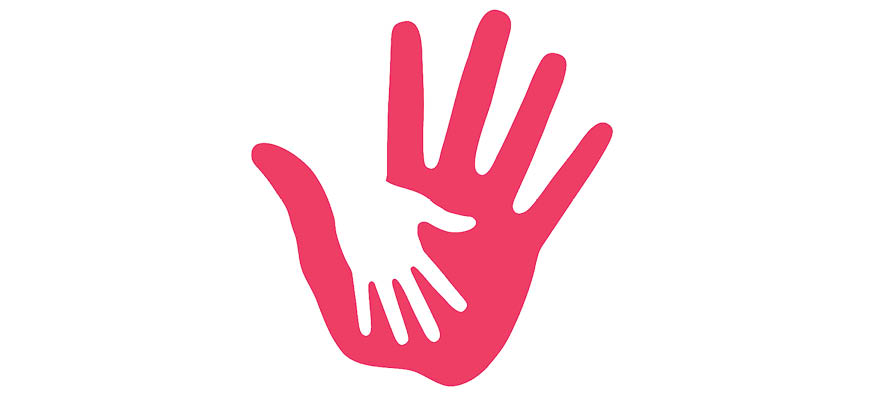When Parsi Times’ Asst. Editor, Delaveen, requested me to key in my thoughts on Charity and Philanthropy in the Zoroastrian community for publication in this Special Navroze issue, I thought it would be appropriate to expand on the very enlightened editorial, ‘This Toxic Sense of Entitlement’, published in Parsi Times issue of April 22, 2017, by its erudite Editor, Anahita Subedar. Before I share my thoughts on the subject given to me to expound on, I take this opportunity to wish all Zoroastrians Navroze Mubarak – May our beautiful community bloom and blossom for generations to come!
The concept of Charity, as I understand it, is that of a conscious act of extending benevolence to others, made by a willing heart. I believe that the essence of benevolence has been deeply ingrained into us Zoroastrians to find meaning in life. As Zoroastrians, most of us strive to feel a sense of connection and purpose to life. Giving of our time, money, and energy, is the central way through which we attempt to fulfil these beliefs.
The concept of Philanthropy, on the other hand, has characteristics quite different from charity and the two should not be mixed up, because though there is a degree of overlap in practice, not all charity is philanthropy, and vice versa – the distinction being that whilst charity aims to relieve the pain of a particular social problem, philanthropy attempts to address the root cause of the problem – the difference between the proverbial gift of giving fish to hungry persons versus teaching them how to fish.
Our hearts move us to help. While we are very generous in charitable giving, we have hardly ever examined if our much recognised and appreciated charity is helpful, wasted or actually harming the people we target to help? What is surprising is that outcomes of our very well intentioned charities, are almost entirely unexamined. Those closest to the ground, on administering charity, quietly admit that it may be hurting more than helping! How? By creating dependency and destroying personal initiative. When we do for those in need what they have the capacity to do for themselves, all we achieve is creating a sense of entitlement, thereby destroying their will to help themselves.
For all our efforts to eliminate poverty through our charities, all we have actually succeeded has been in creating a permanent underclass, eroding their moral values of work, on account of which our poor continue to get even poorer. Giving to those in need what they could be gaining from their own initiative may well be the kindest way to destroy people. We mean well, our motives are good, but we neglect to conduct careful due diligence to determine both, emotional and economic outcomes, of those on the receiving end of our charity.
 As compassionate people, we have been evaluating our charity by the rewards we receive through service, rather than the benefits received by those served. We have failed to adequately calculate the effects of our service on the lives of those reduced to objects of our pity and patronage. Unfortunately, our compassionate instinct has a serious shortcoming. We respond with alacrity to desperate circumstances but are often unable to shift from crisis relief to the more complex work of long-term development. When relief does not transition to development in a timely way, our compassion becomes toxic.
As compassionate people, we have been evaluating our charity by the rewards we receive through service, rather than the benefits received by those served. We have failed to adequately calculate the effects of our service on the lives of those reduced to objects of our pity and patronage. Unfortunately, our compassionate instinct has a serious shortcoming. We respond with alacrity to desperate circumstances but are often unable to shift from crisis relief to the more complex work of long-term development. When relief does not transition to development in a timely way, our compassion becomes toxic.
Sadly, our charities have encouraged many to think, “Why should we work hard when we can sponge off our Charity Trusts?” To combat this attitude, it needs to be recognised by Trustees and Trust administrators, that encouraging dependency on welfare deprives people of the pride of their own accomplishments. Welfare dependency erodes the work ethic and creates unhealthy situations that will not elevate people out of poverty. Over the years, it has been experienced that the conclusion of such an approach is that of an inspiring vision ending as a devastating debacle.
It has to be recognised that all charity is not necessarily good charity. Even the most kind hearted, rightly motivated giving, can exact an unintended toll on the dignity of the receiver.
Whilst it is important that giving be truly free, charity should never degenerate into belittling the recipient. Dispensing alms affirms the superiority of the giver, who thus binds the recipients, expecting gratitude, and reduces their self-esteem. Having compromised on their self respect transforms the recipients’ expectation of philanthropy to be thought of as an entitlement. Such a potent combination of patronizing pity and unintended superiority, results in charity becoming toxic.
Decades of free aid from well-meaning benefactors has produced an entitlement mentality and eroded the spirit of entrepreneurship and self-sufficiency in our community. Humanitarian responses unaccompanied by disciplined development strategies have actually created road blocks for the growth and economic progress for our community. Those forfeiting significant portions of their dignity for the addiction of welfare do not easily part with this dependency. The reality is that such aid has helped make our poor even more poor and growth slower.
Relationships built on need are seldom healthy. The immediate predicament may pluck at one’s heartstrings, but if it persists, the tune in time goes sour. It is never the intention of any benefactor to support irresponsibility or create dependency. At some point accountability is required. The lack of full disclosure opens the door to suspicion and mistrust. The benefactor feels deceived by the recipient’s lack of candour, resulting in the relationship eventually dissolving.
Trustees and Administrators of our community charities must seriously review and revamp, if the economic future of our community is to be refashioned, and the community strengthened economically, by supporting those who wish to help themselves. From Charity they must move on to philanthropy. The current energy driving human compassion is at an all-time high. Rightly deployed, it can create lasting solutions to various problems faced by society.
One of the simple but effective solutions to eradicating the poverty growing in our community in India, would be to invest in financially marginalised populations through making available to them, interest-free loans to help them build their small, life-sustaining businesses, rather than making them the recipient of doles. The very few of our Trusts who have adopted the model of judiciously mixing charity with philanthropy have been dispensing charity to the aged and infirm and pursuing philanthropy by making available interest-free financial support towards pursuits that would extradite the able-bodied from the morass of poverty, and bring them back into the mainstream of society. The results of such initiatives have been very encouraging!
Having said all the above, we must also consider the reality that our rapidly declining numbers are affecting and eroding our general economic affluence. We are an assorted community in terms of our socio-economic status. The growing dependency ratio is the fallout of our skewed demographic profile that has restricted the proportion of economically active population in the community. Whilst very few poor Zoroastrians may be visible on the streets, certain sections of the community are economically disadvantaged and live on very low subsistence support. Contrary to popular belief, a Tata Institute of Social Sciences (TISS) report of a study published in 2009 has revealed that there is a small fraction of the community which exists even below the poverty line ($1.25 or Rs.80 per day) as per the Govt. of India’s official definition of poverty!!
As per the TISS report, “On an average, there is less than one working member (0.93) per family. About two-fifths of the households do not have a single working member. Exactly, two-thirds of these households do not have any regular source of income. A large section of the members of these households is beyond the working age group and more than one-fourth of them have some form of disability. In addition to all these adverse factors, almost 90% of those who are economically challenged have studied only up to higher secondary level”.
Whilst concluding, it must be mentioned that it would be futile to expect any improvements from such an insipid scenario, till such time trustees and administrators of our charity trusts understand, accept and implement the real meaning of the adage – “Give a man a fish, feed him for today. Teach a man to fish, feed him for a lifetime”. To these wise words let me add, ‘Whilst charity is for today, philanthropy is forever!’
- કેવો સુંદર જવાબ! - 29 March2025
- પારસી સન્નારીઓ તેમના જાદુઈ સ્પર્શ સાથે બની સુરત મેરિયોટ અથવા લાઇન્સના રસોડાની રાણીઓ - 29 March2025
- મોબેદ મેહરાબાન ફિરોઝગરીનું અવસાન - 29 March2025

I do recognise that we have not been able to shake off a certain residue of the old colonial psychology. Our charities are inhibited by administrative procedures and by the fact that in the highly competitive world of today we are not able to provide opportunities which are commensurate with the talents of our young people and there is underutilisation of available human capacity. We are not seeking imitative affluence and power but an opportunity once again to make our contribution to the world.